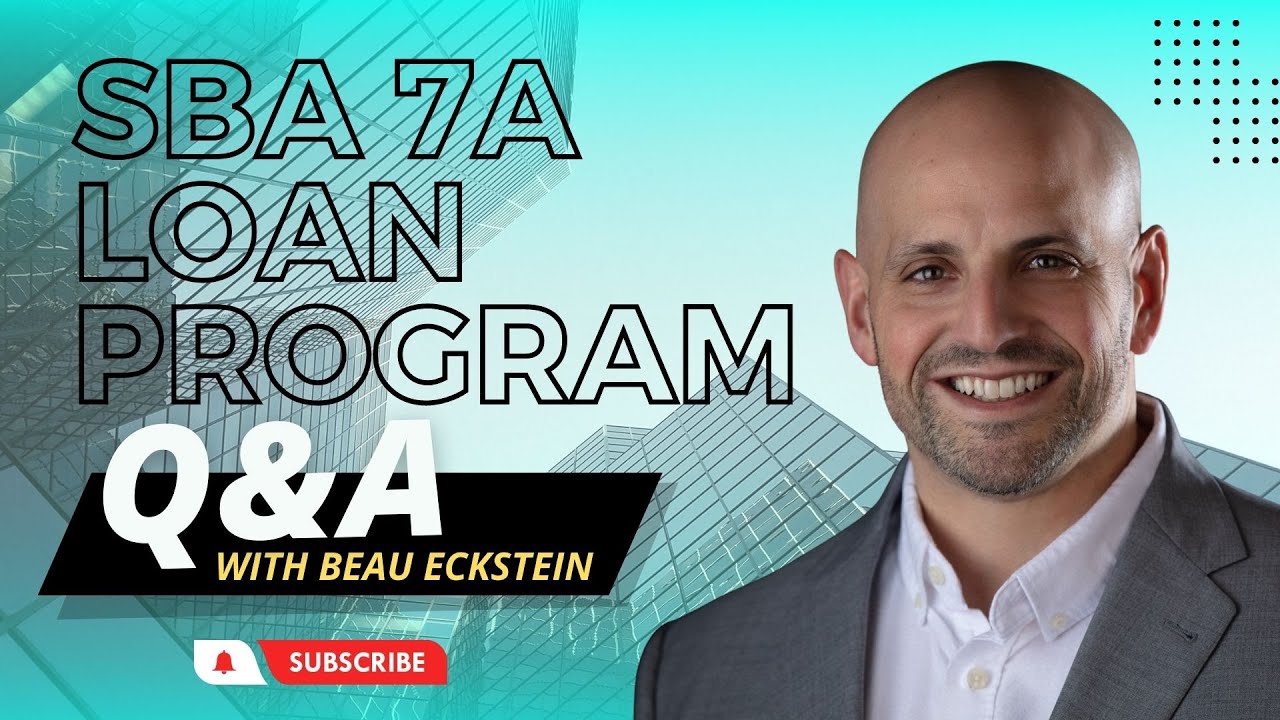
The SBA 7(a) loan program is a vital resource for small businesses seeking financial assistance. It offers various options tailored to meet the unique needs of entrepreneurs. Whether you’re starting a new venture or expanding an existing one, understanding the ins and outs of this program can set you on the path to success.
Understanding the SBA 7(a) Loan Program
The SBA 7(a) loan program provides loans with favorable rates to eligible small businesses. With loan amounts reaching up to $5 million, these funds can be used for a variety of purposes including purchasing real estate, funding working capital, and refinancing existing debt. The program is designed to assist those who may find it challenging to secure conventional financing.

Photo by Hunters Race on Unsplash
By guaranteeing a portion of the loan, the SBA reduces the risk for lenders, which in turn encourages them to provide loans to small businesses. This guarantee means that even if a borrower defaults, the lender is partially protected, making them more willing to lend.
Types of SBA 7(a) Loans
The 7(a) program encompasses several loan types, each tailored for different business needs. Here’s a breakdown:
- Standard 7(a) Loans: Available for amounts up to $5 million, these loans are versatile and can be used for various business purposes.
- 7(a) Small Loans: For smaller needs, these loans cap at $350,000 and are ideal for businesses that don’t require larger amounts.
- SBA Express Loans: Designed for quicker processing, these loans are available up to $500,000 and provide a faster response time.
- Export Express Loans: Targeted at businesses engaged in international trade, these loans help support export activities.
- CAPLines: These are revolving lines of credit tailored for short-term working capital needs.

Photo by Dose Juice on Unsplash
Preparing Your Business Plan
One common question is, “What is the best way to get help putting a business plan together for an SBA loan?” If you’re looking for assistance, there are both paid and free resources available. Two excellent free options are:
- Small Business Development Centers (SBDC): These centers provide counseling and training for small businesses, including help with business plans. You can find an SBDC near you by searching online.
- Score.org: This nonprofit organization offers free mentoring and resources to help you craft your business plan and financial projections.
While these resources are invaluable, some entrepreneurs may prefer paid services for quicker turnaround times. Regardless of the route you choose, having a solid business plan is crucial for securing financing.

Photo by Olga Kovalski on Unsplash
Financing Options for Buying a Franchise
Many entrepreneurs are curious about the best financing options for purchasing a franchise. Here’s a quick overview of the three main avenues:
- SBA Loans: First, check if the franchise is listed on the SBA’s approved directory. If not, there may be ways to expedite the approval process.
- Equipment Financing: Some lenders specialize in financing equipment and build-outs specific to franchises.
- Unsecured Term Loans: If you have a good credit score, you may qualify for unsecured loans, which don’t require collateral.
Additionally, consider other funding sources like personal savings, borrowing from family, or leveraging a retirement account through a ROBS plan.

Photo by Adeolu Eletu on Unsplash
Collateral Requirements for SBA 7(a) Loans
Another frequently asked question is whether the SBA requires additional collateral for a 7(a) loan. The answer is yes, especially if there’s a collateral shortfall. For instance:
- If you're financing equipment, the SBA may only secure 50% of the equipment's value. For brand-new equipment, this increases to 75%.
- If there’s insufficient collateral, lenders may require additional assets, such as your home or rental properties.
However, if there is less than 25% equity in the collateral, the SBA won't require it to be pledged. This nuanced requirement highlights the importance of working with a knowledgeable professional who can guide you through the complexities of SBA lending.

Photo by jennifer uppendahl on Unsplash
Understanding the Application Process
The application process for an SBA 7(a) loan can be intricate, but knowing the steps can simplify it. Here’s a quick breakdown:
- Determine Eligibility: Ensure your business meets the SBA's criteria, including being for-profit and operating in the U.S.
- Select an SBA-Approved Lender: Use the SBA's Lender Match tool to find a suitable lender.
- Prepare Required Documentation: This includes your business plan, financial statements, and tax returns.
- Submit Application: Present your application to the lender for consideration.
- Loan Closing: If approved, you’ll finalize the loan terms with the lender.

Photo by Markus Winkler on Unsplash
Why Work with a Professional?
Navigating the SBA loan landscape can be challenging, especially with varying requirements among lenders. This is why partnering with a professional can be beneficial. A knowledgeable advisor can help you:
- Understand the nuances of different loan types.
- Prepare a compelling business plan.
- Identify the right financing options for your needs.
For personalized assistance, consider booking a discovery call with a business advisor. You can explore tailored solutions for your specific situation at Book with Beau.

Photo by Adeolu Eletu on Unsplash
Conclusion
The SBA 7(a) loan program is an invaluable resource for small businesses. Understanding the types of loans available, the preparation needed for applications, and the importance of collateral can significantly enhance your chances of success. With the right planning and support, you can secure the financing necessary to grow your business.
For more insights and updates on SBA financing and business ownership, consider joining the Investor Financing Podcast email list. This way, you can stay informed and empowered as you embark on your entrepreneurial journey.
